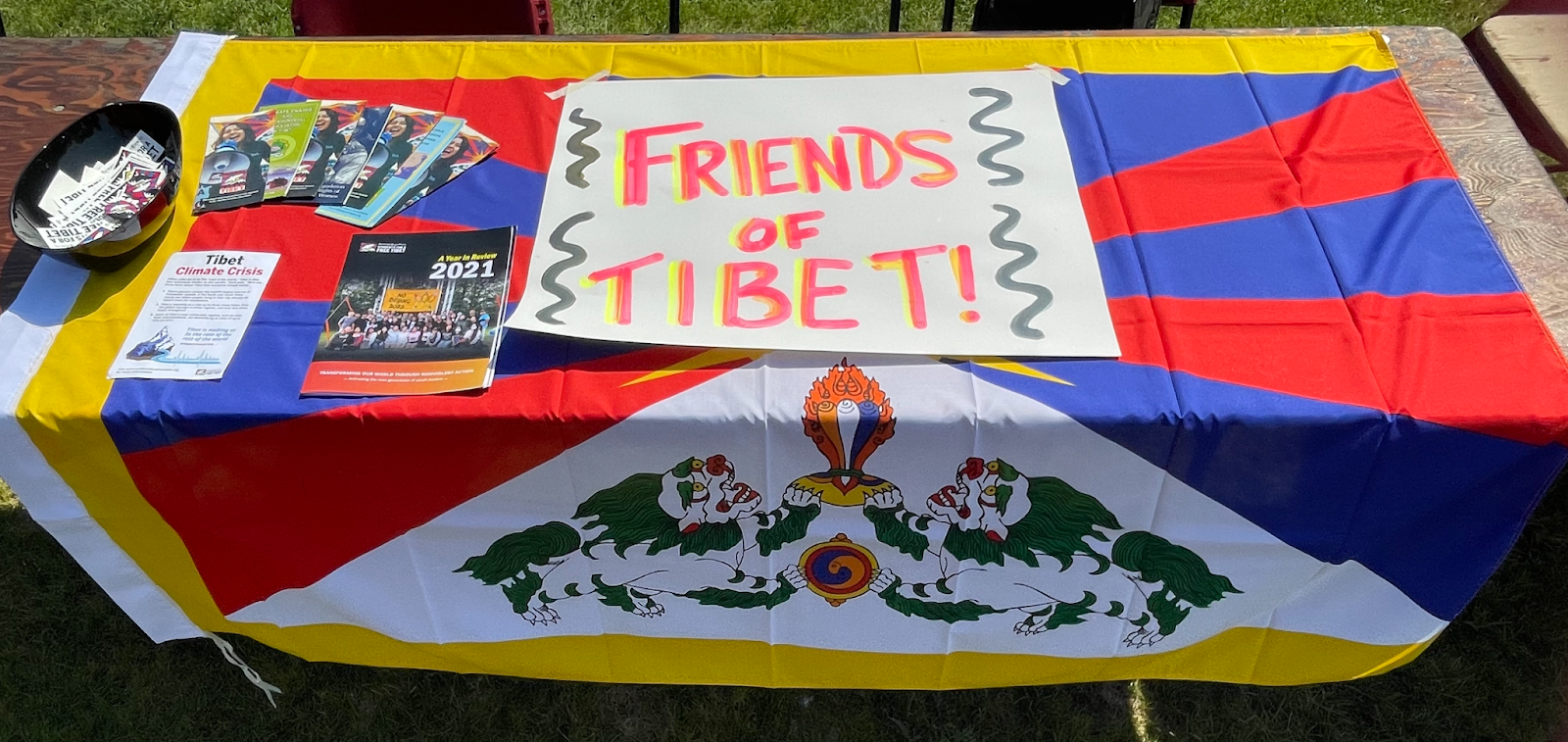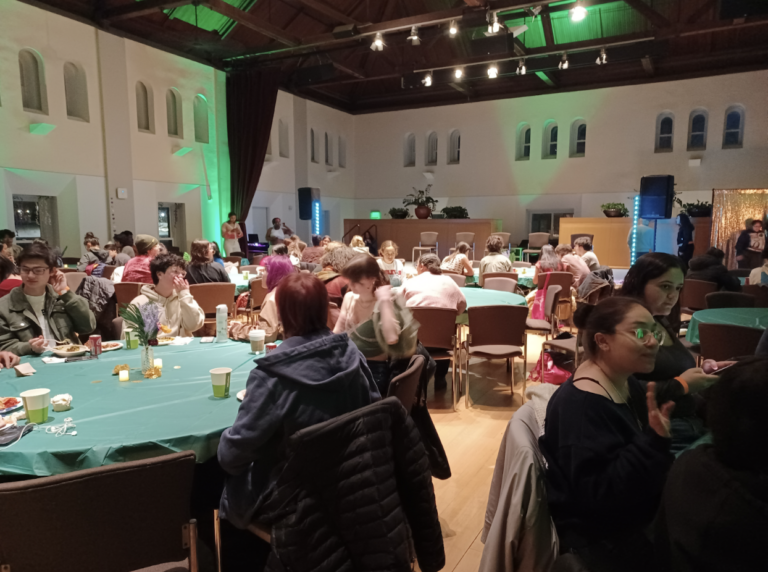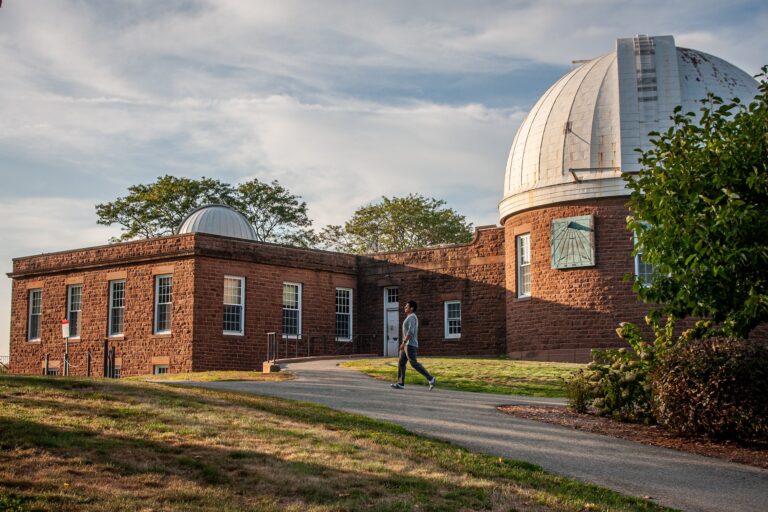Sharing Culture and Taking Action: Friends of Tibet Starts Up at Wesleyan

Tenzin Yengkey ’25 is proudly Tibetan. She grew up attending a Tibetan school in New York City and speaks Tibetan at home with her family.
“I was always taught to have pride in my country,” Yengkey said. “It’s kind of our responsibility [to] not forget our own traditions, culture, and language.”
Yengkey’s roommate, Tenzin Jamdol ’25, is also Tibetan. They talked about starting a group on campus to create a community for Tibetan students and to raise awareness about issues in Tibet.
“Me and my roommate wanted to start something to show, ‘Hey, we are Tibetan and we want to show you our culture’ at this PWI [predominantly white institution],” Yengkey said.
This year, Yengkey and Jamdol joined with Khando Wangdu ’23, Reese Chahal ’25, and Gaybchoe Lhamo ’24 to start a new club at the University called Friends of Tibet. In addition to sharing their culture with the Wesleyan community and cultivating a space for Tibetan students on campus, the club’s founders hope to raise awareness of issues pertaining to human rights and environmental justice in Tibet.
China has occupied Tibet for over 60 years and continues to deny Tibetans sovereignty to this day, despite calls for independence. The Chinese government has also committed widespread human rights violations in Tibet: recent reporting indicates that China is coercing Tibetans into labor camps that seek to “educate” and assimilate Tibetans into Chinese culture. Meanwhile, a 2020 report published by The U.S. Department of State details the “disappearance” of Tibetans at the hands of Chinese officials and cases of torture, arrests, and unfair trials of Tibetans.
“Indigenous people are being displaced, there’s a huge human rights crisis,” Chahal said. “It’s a very intersectional subject that, regardless of your ties to Tibet, you should care about.”
The Chinese government restricts media coverage of Tibet severely: according to the U.S. Department of State, international journalists must acquire a special permit from the government to visit. Free speech among Tibetans is also restricted, as many could be subject to harm from government officials for speaking out.
“People [are] saying that [Tibetans] who are taking videos and bringing awareness to this are risking their lives to do this,” Wangdu said. “So for us, we’re in a position where we can definitely speak about it so I feel like it’s a responsibility to talk about this on campus whenever we can.”
In addition to issues of governmental censorship, students spoke about the important role of environmental activism in Tibet. Chahal got involved with environmental justice in Tibet after attending an Earth Day protest in McLeod Ganj, India. As Tibet’s natural resources are exploited and depleted, floods and widespread pollution threaten Tibetans and neighboring countries.
The group hopes to create events for students to learn more about Tibet; possibilities include bringing a Tibetan speaker to campus, hosting an event to serve momos (a type of Tibetan dumpling), and celebrating Tibetan New Year in February. They also hope to organize ways to bring students to protests in bigger cities.
“We want to make it clear that this club is not only for Tibetans, it’s a collective thing,” Yengkey said. “If it only was for Tibetans, there would be like four members. We want everyone to be involved. You don’t have to know anything about Tibet.”
Lhamo says that the University offers a unique space for students to collaborate and learn about each others’ identities and backgrounds.
“I’ve gained a lot of cultural awareness by meeting so many different people [at the University],” Lhamo said. “Starting this club is a good thing because I can educate [students] on who I am, where I’m from, and when they get to know me, they can know about my culture and my people.”
Lhamo was born in Tibet and left when she was young. She lived in Nepal and India before coming to Connecticut, where she was raised in a small Tibetan community in Uncasville.
“Growing up, I only knew about Tibet, but now [that] I’m at Wesleyan, I see that so many countries are going through similar issues,” Lhamo said. Using this newfound awareness, she hopes to collaborate with other student activists from different cultural backgrounds.
Students interested in joining Friends of Tibet can contact Tenzin Yengkey at tyengkey@wesleyan.edu.
Halle Newman can be reached at hnewman@wesleyan.edu.








Leave a Reply